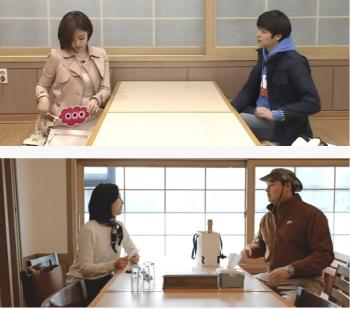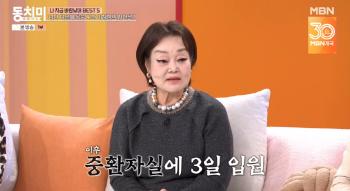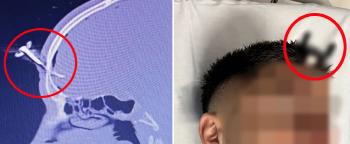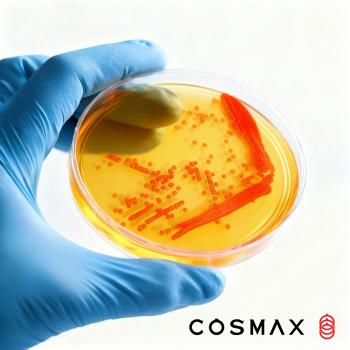Seoul National University Hospital presents a standard education and training system for nurses who support medical treatment for the first time in Korea
Nov 19, 2025
Seoul National University Hospital (Hospital President Kim Young-tae) held a 'Medical Support Competency Development Symposium' at Cheil Jedang Hall on the 11th and quantitatively analyzed the actual work of medical support nurses, revealing 12 core 'Entrustable Professional Activities (EPA)' and step-by-step education and training systems.
This study is the first in Korea to present an EPA-based step-by-step education and training system based on job analysis, and is significant in that it has secured the basis for solving educational deviations and role ambiguity that have been continuously raised in the medical field.
Medical support nurses are specialized personnel who perform various tasks such as patient evaluation and recording and prescription support, procedure and treatment support, surgical support and extracorporeal circulation, education and counseling, and maintain patient safety and continuity of treatment.
However, as the scope of work has expanded and complexity has increased recently, educational gaps and role confusion have emerged due to differences in proficiency, and the need for a standard education system that can systematically manage this has been steadily raised. Seoul National University Hospital conducted a study to quantify job characteristics and competency levels by reflecting the needs of these sites, and to establish a medical support nurse education and training system based on this.
At this symposium, the results of the research conducted by Seoul National University Hospital as a strategic research project in 2025 and the TF (Chairman Park Joong-shin, Vice Chairman Jung-hee, Director of Nursing Headquarters) were disclosed for the first time. The study was conducted in three detailed tasks: job analysis of medical support nurses, job satisfaction and role change investigation, and job and competency-based education and training system design.
In the first 'job analysis' study, 150 medical support nurses evaluated the importance and performance level of 11 major jobs, and 14 professors and nursing managers analyzed the difficulty and patient safety impact of the same job.
As a result of the job competency index analysis calculated by integrating the evaluations of the two groups, ▲ critical patient management ▲ professional nursing intervention ▲ education and counseling ▲ prescription/examination management ▲ condition monitoring and patient assessment showed a high level in common, which was identified as 'deepening job'. This is the first basis for quantitative agreement between field awareness and expert evaluation, and the need to develop customized education modules in the future was also suggested due to the different ratio of in-depth job composition by medical department.
In the second 'Job Satisfaction and Role Change Survey' study, the role change experience of medical support nurses who are in charge of advanced practice for the first time was analyzed through surveys and in-depth interviews. They initially experienced stress and confusion due to increased workload and role ambiguity, and 'respect and recognition in the field', 'support at the organizational level', 'growth through job', and 'participation in hospital operation' were key factors driving the successful role transition. As a result of the study, it was confirmed that structured education and organizational support are needed for medical support nurses to establish themselves stably as professional personnel.
In the third 'job and competency-based education and training system design' study, 12 core 'delegatable professional jobs (EPA)' were derived that standardized the tasks that medical support nurses should perform in clinical practice.
Core EPA refers to a working unit that can be performed independently under a certain level of supervision. ▲ Patient assessment and planning ▲ Prescription management and monitoring ▲ Treatment and procedure performance and evaluation ▲ Evidence-based intervention design and evaluation ▲ Observation of changes in patient condition and initial action ▲ Emergency response and follow-up measures ▲ Explaining patient and family treatment and supporting decision-making ▲ Participation in multidisciplinary collaboration and medical coordination ▲ Transitional period management and patient education ▲ Clinical records and information management ▲ Quality improvement and evidence-based research ▲ Professional leadership and education are covered by the.
Based on the derived core EPA, the research team designed the education and training system for medical support nurses as a four-stage growth model (Phases 1 to 4) rather than short-term education. Each step consists of ▲ Pre-resistance ▲ Initial Performer (Phase 2, Resistance) ▲ Independent Performer (Phase 3, Fellowship) ▲ Leadership.
Among them, Phase 1 was designed as a modular curriculum consisting of common theory, common skills, theory by field, and skills and field practice, and evaluation tools such as DOPS, Mini-CEX, and OSCE were also prepared to materialize the basic system of nursing education for medical support for the first time in Korea. This is expected to be a practical basis that can be used as a standard model for 'medical support service education implementation rule' to be implemented in the future.
At the symposium, Shin Yeon-hee, head of the nursing division at Seoul National University Bundang Hospital, Kim Yoo-sun, a medical support nurse at Seoul National University, and Yoo Jong-won, a professor at Seoul National University College of Nursing, participated in a panel discussion on the role and policy direction of each institution related to the establishment of the education system.
"This study is significant in that it clearly defines the core duties of medical support nurses and establishes a step-by-step competency development system," said Kim Young-tae, head of the hospital. "Based on this, we will prepare for future changes in laws and systems, and further solidify the foundation that contributes to fostering professional manpower and improving the level of patient safety-centered care."."
This study is the first in Korea to present an EPA-based step-by-step education and training system based on job analysis, and is significant in that it has secured the basis for solving educational deviations and role ambiguity that have been continuously raised in the medical field.
Medical support nurses are specialized personnel who perform various tasks such as patient evaluation and recording and prescription support, procedure and treatment support, surgical support and extracorporeal circulation, education and counseling, and maintain patient safety and continuity of treatment.
However, as the scope of work has expanded and complexity has increased recently, educational gaps and role confusion have emerged due to differences in proficiency, and the need for a standard education system that can systematically manage this has been steadily raised. Seoul National University Hospital conducted a study to quantify job characteristics and competency levels by reflecting the needs of these sites, and to establish a medical support nurse education and training system based on this.
At this symposium, the results of the research conducted by Seoul National University Hospital as a strategic research project in 2025 and the TF (Chairman Park Joong-shin, Vice Chairman Jung-hee, Director of Nursing Headquarters) were disclosed for the first time. The study was conducted in three detailed tasks: job analysis of medical support nurses, job satisfaction and role change investigation, and job and competency-based education and training system design.
In the first 'job analysis' study, 150 medical support nurses evaluated the importance and performance level of 11 major jobs, and 14 professors and nursing managers analyzed the difficulty and patient safety impact of the same job.
As a result of the job competency index analysis calculated by integrating the evaluations of the two groups, ▲ critical patient management ▲ professional nursing intervention ▲ education and counseling ▲ prescription/examination management ▲ condition monitoring and patient assessment showed a high level in common, which was identified as 'deepening job'. This is the first basis for quantitative agreement between field awareness and expert evaluation, and the need to develop customized education modules in the future was also suggested due to the different ratio of in-depth job composition by medical department.
In the second 'Job Satisfaction and Role Change Survey' study, the role change experience of medical support nurses who are in charge of advanced practice for the first time was analyzed through surveys and in-depth interviews. They initially experienced stress and confusion due to increased workload and role ambiguity, and 'respect and recognition in the field', 'support at the organizational level', 'growth through job', and 'participation in hospital operation' were key factors driving the successful role transition. As a result of the study, it was confirmed that structured education and organizational support are needed for medical support nurses to establish themselves stably as professional personnel.
In the third 'job and competency-based education and training system design' study, 12 core 'delegatable professional jobs (EPA)' were derived that standardized the tasks that medical support nurses should perform in clinical practice.
Core EPA refers to a working unit that can be performed independently under a certain level of supervision. ▲ Patient assessment and planning ▲ Prescription management and monitoring ▲ Treatment and procedure performance and evaluation ▲ Evidence-based intervention design and evaluation ▲ Observation of changes in patient condition and initial action ▲ Emergency response and follow-up measures ▲ Explaining patient and family treatment and supporting decision-making ▲ Participation in multidisciplinary collaboration and medical coordination ▲ Transitional period management and patient education ▲ Clinical records and information management ▲ Quality improvement and evidence-based research ▲ Professional leadership and education are covered by the.
Based on the derived core EPA, the research team designed the education and training system for medical support nurses as a four-stage growth model (Phases 1 to 4) rather than short-term education. Each step consists of ▲ Pre-resistance ▲ Initial Performer (Phase 2, Resistance) ▲ Independent Performer (Phase 3, Fellowship) ▲ Leadership.
Among them, Phase 1 was designed as a modular curriculum consisting of common theory, common skills, theory by field, and skills and field practice, and evaluation tools such as DOPS, Mini-CEX, and OSCE were also prepared to materialize the basic system of nursing education for medical support for the first time in Korea. This is expected to be a practical basis that can be used as a standard model for 'medical support service education implementation rule' to be implemented in the future.
At the symposium, Shin Yeon-hee, head of the nursing division at Seoul National University Bundang Hospital, Kim Yoo-sun, a medical support nurse at Seoul National University, and Yoo Jong-won, a professor at Seoul National University College of Nursing, participated in a panel discussion on the role and policy direction of each institution related to the establishment of the education system.
"This study is significant in that it clearly defines the core duties of medical support nurses and establishes a step-by-step competency development system," said Kim Young-tae, head of the hospital. "Based on this, we will prepare for future changes in laws and systems, and further solidify the foundation that contributes to fostering professional manpower and improving the level of patient safety-centered care."."
|
This article was translated by Naver AI translator.














